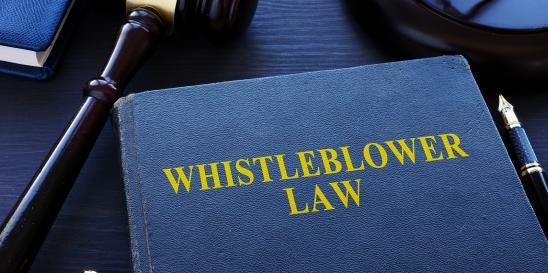In a speech on the ABA’s Nationwide Institute on White Collar Crime, Deputy Lawyer Common Lisa Monaco introduced a brand new pilot whistleblower reward program that fills important gaps in current whistleblower reward programs, together with the SEC whistleblower program. The DOJ plans to announce the small print of this system in roughly 90 days and launch it this 12 months. This system will “create new incentives for people to report misconduct.”
Just like the “original information” requirement {that a} whistleblower should meet to qualify for an SEC whistleblower award, the DOJ would pay an award to a whistleblower for “assist[ing] DOJ uncover important company or monetary misconduct — in any other case unknown to [DOJ].”
The statutory foundation for the award program is current authority to pay awards for info or help resulting in civil or prison forfeitures. Specifically, 28 U.S.C. § 524 (c)(1)(C) authorizes the Lawyer Common to pay “awards for info or help resulting in a civil or prison forfeiture involving any Federal company taking part within the [Department of Justice Assets Forfeiture Fund].”
Monaco recognized 4 guardrails for this system. The DOJ would provide funds:
- “Solely in any case victims have been correctly compensated;
- Solely to those that submit truthful info not already identified to the federal government;
- Solely to these not concerned within the prison exercise itself;
- And solely in circumstances the place there isn’t an current monetary disclosure incentive — together with qui tam or one other federal whistleblower program.”
This program might fill a major hole within the Anti-Money Laundering Act whistleblower reward statute (AMLA) in that the AMLA’s definition of “financial sanctions” for which a whistleblower can qualify for an award doesn’t embody forfeiture. As forfeiture is a standard treatment in anti-money laundering and sanctions evasion enforcement actions, the AMLA whistleblower legislation considerably limits the financial sanctions from which FinCEN pays whistleblower awards. By paying whistleblower awards from civil and prison forfeitures, the DOJ will incentivize whistleblowers to report cash laundering and sanctions evasion.
The DOJ’s new pilot whistleblower reward program would additionally considerably broaden the scope of International Corrupt Practices Act (FCPA) violations for which whistleblowers might qualify for awards. The SEC whistleblower program pays awards for FCPA violations dedicated by issuers and pays related action awards when the DOJ takes an enforcement motion primarily based on the identical authentic info that the whistleblower gave to the SEC resulting in the SEC acquiring an order for monetary sanctions totaling greater than $1 million. And the CFTC can pay awards for whistleblower disclosures about violations of the Commodity Exchange Act involving foreign corrupt practices. Till this new DOJ whistleblower pilot program, potential whistleblowers haven’t had an incentive to report FCPA violations that don’t fall throughout the jurisdiction of the SEC or CFTC.
Monaco highlighted three varieties of violations for which the DOJ is particularly curious about attracting disclosures:
- Legal abuses of the U.S. monetary system;
- International corruption circumstances outdoors the jurisdiction of the SEC, together with FCPA violations by non-issuers and violations of the lately enacted International Extortion Prevention Act; and
- Home corruption circumstances, particularly involving unlawful company funds to authorities officers.
This new DOJ whistleblower reward program, coupled with DOJ initiatives to encourage companies to self-disclose violations and whistleblower pilot programs designed to encourage early and voluntary self-disclosure of prison conduct by particular person contributors in sure non-violent offenses, creates sturdy incentives to report violations promptly and help with authorities investigations. As Monaco stated in her speech, “knock on our door earlier than we knock on yours.”
The Transactional Records Access Clearinghouse lately launched a study discovering that the DOJ’s prosecution of white-collar crime has been dropping steadily for the previous decade and that “nearly all of prison referrals for white-collar offenses that federal prosecutors obtain are closed with out prosecution.” The DOJ’s new whistleblower reward program might reverse that pattern.
Whistleblower reward applications have been terribly efficient in combating company fraud. For instance, whistleblower disclosures to the SEC have led to enforcement actions with financial sanctions exceeding $6 billion and have helped the SEC to return greater than $1 billion to harmed buyers. False Claims Act qui tam actions have enabled the DOJ to get well greater than $75 billion. These applications have a demonstrated report of success and can proceed to be an essential power multiplier to fight white collar crime.


